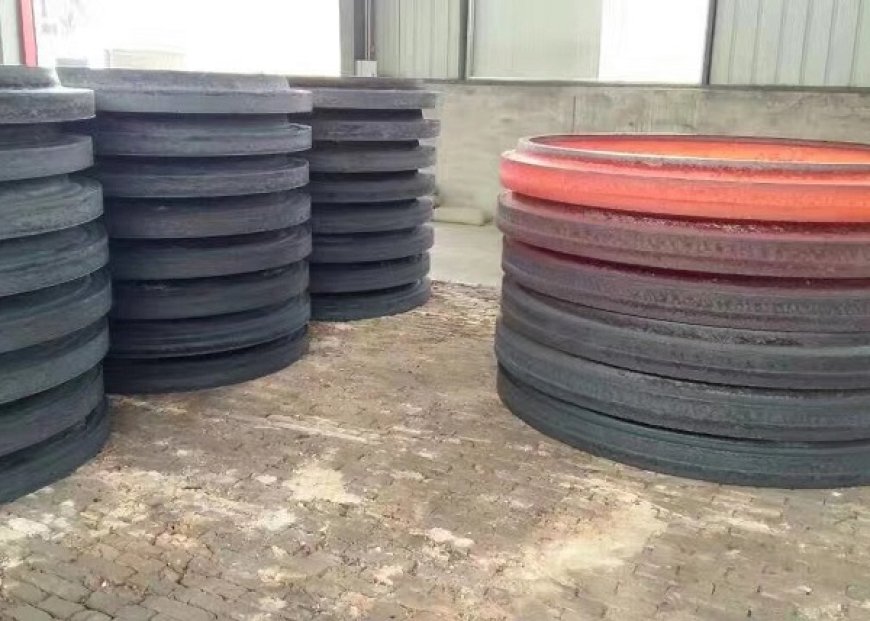A Practical, Step-By-Step Guide On Specifying, Ordering, Or Best Practices For Procurement Of Custom Rolled Rings
With over 30 years of experience in the forging and import business, we can offer the best prices and delivery on a wide variety of steel and alloy products. Our state of the art factory in China is one of the best quality forging and manufacturing operations in the world.

Custom rolled rings are critical components in major industries such as aerospace and oil & gas to power generation and manufacturing. This is due to their strength-to-weight ratio, superior grain structure, and material integrity. If you want to buy Custom rolled rings, consider the following factors.
This guide aims to educate buyers on best specification practices and help avoid common pitfalls.
Guide On Specifying, Ordering, Or Best Practices For Procurement Of Custom Rolled Rings
Understanding Your Application Requirements
Before drafting specifications, you should have a thorough understanding of the custom rolled ring's end-use application and operating environment such as load-bearing characteristics, temperature extremes, corrosion resistance, wear and abrasion, vibration and fatigue, and pressure requirements. This foundational step dictates every subsequent decision, from material selection to quality assurance protocols.
How to Accurately Specify a Custom Rolled Ring
Precision in your specifications is non-negotiable.
Outside diameter measurement
Inside diameter measurement
Height/face width measurement
Wall thickness measurement
Specify the permissible variations for each dimension. Tighter tolerances typically increase cost and lead time, so ensure they are necessary for your application.
Material Selection:This is one of the critical steps to follow, directly impacting performance and cost. Several options are out there including carbon steels, stainless steels, alloy steels, nickel-based alloys, Titanium Alloys, and aluminum alloys. Choose one based on your requirements.
Always specify the exact material grade and relevant ASTM/ASME standard.
Surface Finish and Heat Treatment:
Surface Finish:Define the required surface roughness for critical areas. This can range from as-forged (rough) to finely machined and polished.
Heat Treatment: Specify the heat treatment process essential for achieving desired mechanical properties.
Provide detailed engineering drawings (2D and 3D CAD files where available) that clearly interpret all dimensions, tolerances, material, heat treatment, and surface finish requirements.
Preparing Your RFQ (Request for Quote)
This is your first formal communication with potential suppliers. It impacts the accuracy and completeness of their bids. What to Include:
Briefly describe your required component, its function, and the industry. It includes technical drawings, quantity, delivery timelines, packaging requirements, shipping method and destination.
Understand the Payment terms and warranty period.
A well-structured RFQ minimizes back-and-forth clarification and ensures you receive comparable, accurate bids.
Evaluating Suppliers and Manufacturing Capabilities
ISO 9001 Certification:This indicates a robust quality management system is in place, demonstrating a commitment to consistent quality.
Forging Capacity: Make sure a supplier has the appropriate ring rolling mills and presses to produce the required ring size range and material grades. Inquire about their largest and smallest ring capabilities.
CNC Machining Integration: For proof or finish machining, make sure the supplier has in-house, state-of-the-art CNC machining capabilities. This reduces lead times and ensures quality control throughout the production process.
Heat Treatment Facilities: Ensure the supplier has sufficiently sized and controlled heat treatment furnaces with satisfying capabilities to meet your specific requirements.
In-House Destructive/Non-Destructive Testing:Suppliers with in-house testing labs can offer quicker turnaround times for inspections and greater control over quality.
Quality Control Processes: Check their specific QC procedures, statistical process control (SPC), and non-conformance management.
Experience:Make sure they have proven experience forging and processing the specific alloy grades you require.
A Proven Track Record In Your Industry:Ask for references and case studies, customer audits, and evaluate their supply chain stability.
Quality Assurance and Inspection Protocols
This is vital to guarantee that thecustom rolled ringsmeet all specifications and performance requirements.
Raw Material Verification:Make sure about their incoming material inspection, and verify chemical composition and mechanical properties against the Mill Test Report (MTR) from the raw material producer.
In-Process Checks: This process involves dimensional checks and temperature monitoring, and visual inspection.
Post-Heat Treatment Inspection:This stage includes hardness testing, tensile testing, impact testing, and grain structure analysis.
Final Dimensional Inspection:A final check of all dimensions and tolerances after all manufacturing processes is complete.
Documented Testing Reports and Material Traceability
A supplier should provide material test reports, NDT reports, heat treatment records, dimensional inspection reports, and serialization.
Always specify the exact documentation required and ensure these reports are reviewed and approved before shipment.
Logistics, Delivery, and After-Sales Support
The procurement process extends beyond manufacturing. It involves efficient logistics and reliable after-sales support for a smooth supply chain.
Lead Times:It defines your required lead times from order placement to delivery. Check their capacity to handle rush orders or unforeseen demand spikes.
Packaging:Custom rolled rings are heavy and can be prone to damage if not packaged correctly. Specify robust packaging that protects against corrosion, mechanical damage, and environmental exposure. Make sure about proper labeling with part numbers, quantities, and handling instructions.
Shipping Methods:Discuss the shipping methods and their experience with heavy haulage.
After-Sales Support:Inquire about their process for repeat orders. Will they provide technical support for any questions? Understand their warranty policy and procedures for handling returns or non-conforming products.
Conclusion
Custom rolled rings play a critical role in high-performance applications where reliability and structural integrity are paramount. You should follow that tailored procurement advice for the best deal.
This is whereSumiteccomes in. Learn more atwww.sumitec.com







































